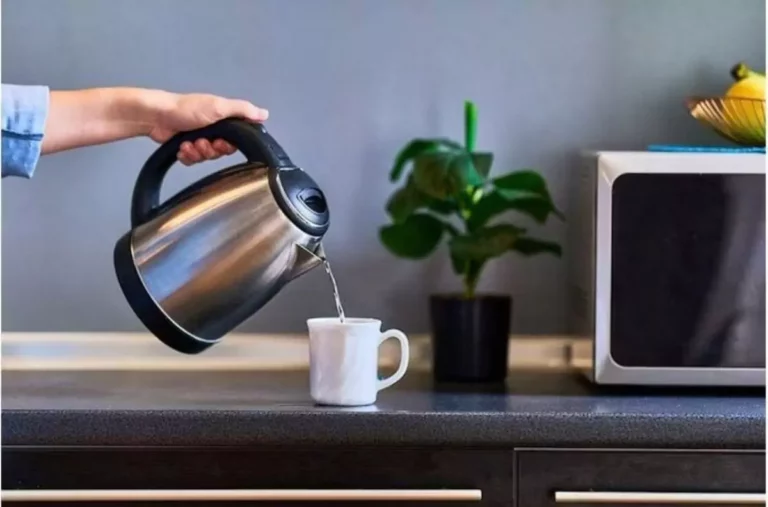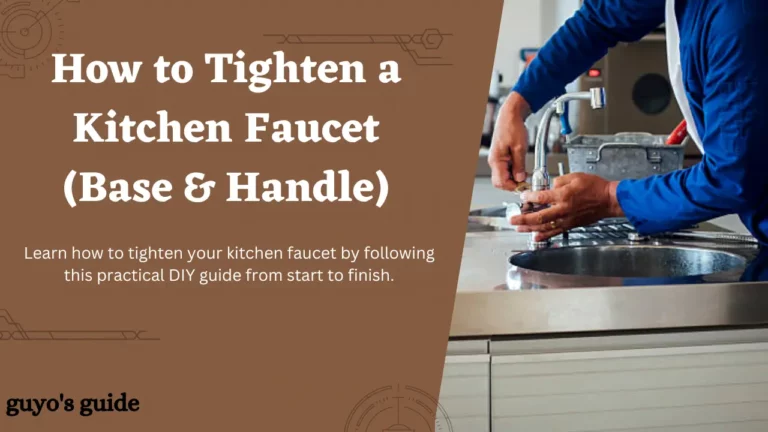31 German Dining Etiquette Rules Every Diner Should Know

Some of the links in this post are affiliate links, meaning, at no additional cost to you, We will earn a commission if you click through and make a purchase.
Guten Tag!
Ever wondered about German dining etiquette?
Dive into the world of German table manners with us.
From how to use utensils to the importance of punctuality, we’ll explore the key aspects that make dining in Germany a special experience.
Let’s get started!
1. Wait for the Host to Begin
In German dining etiquette, it’s customary to wait until the host or hostess starts eating before you begin your meal.
This shows respect for the person who is hosting the gathering and sets a polite tone for the dining experience.
2. Use Cutlery Correctly
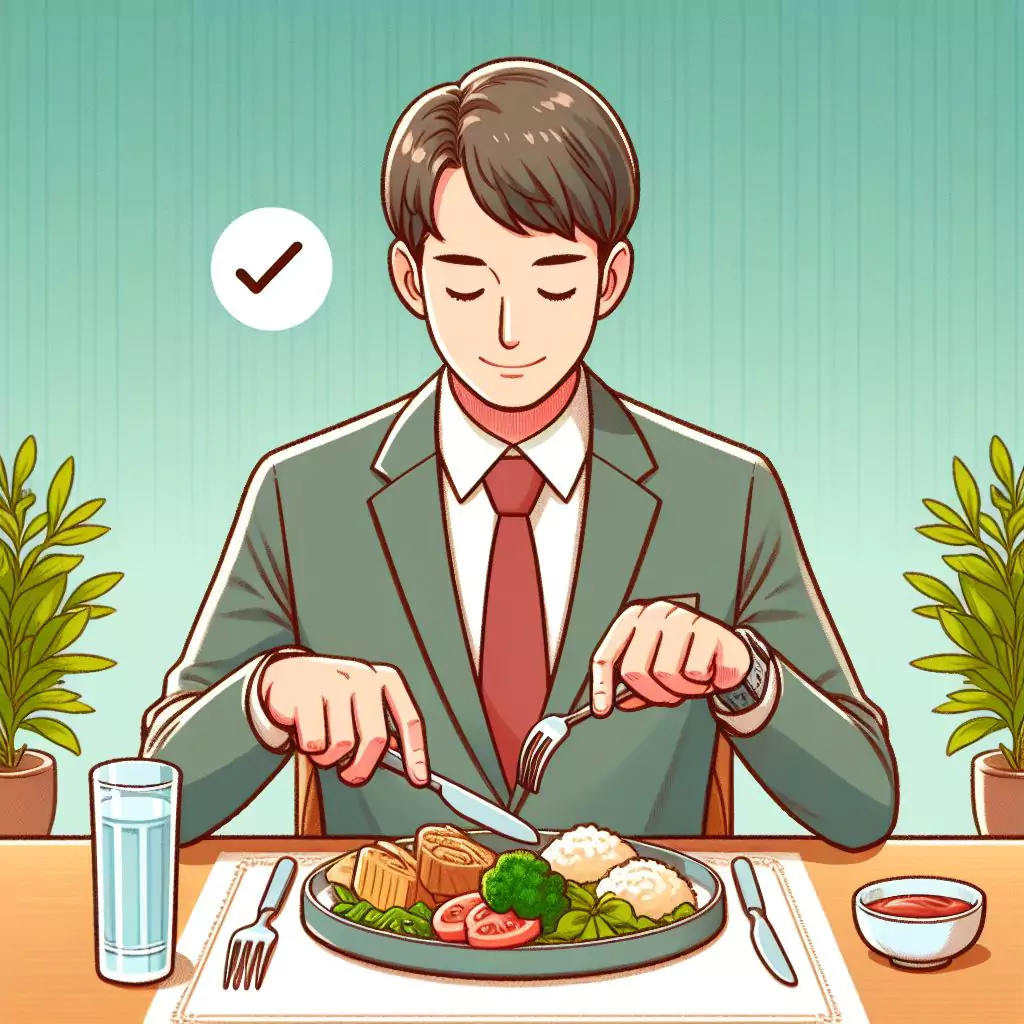
Germans are particular about using the correct cutlery for each course.
Forks are used for most food, with the left hand holding the fork and the right hand holding the knife.
Dessert cutlery is typically placed above the plate and used accordingly.
3. Keep Hands Above the Table

During the meal, it’s polite to keep your hands above the table, resting them between courses or when not actively eating.
This helps maintain a neat and tidy appearance and is considered good manners.
Recommended article: 20 French Dining Etiquette Rules Every Diner Should Know
4. Rest Utensils Properly
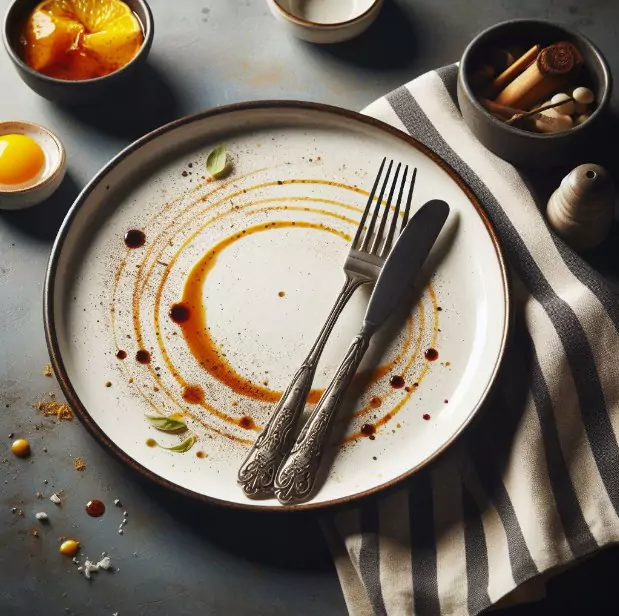
When pausing during a meal or after finishing, place your utensils neatly on the plate.
Crossed forks and knives indicate that you are still eating, while parallel placement signals that you have finished.
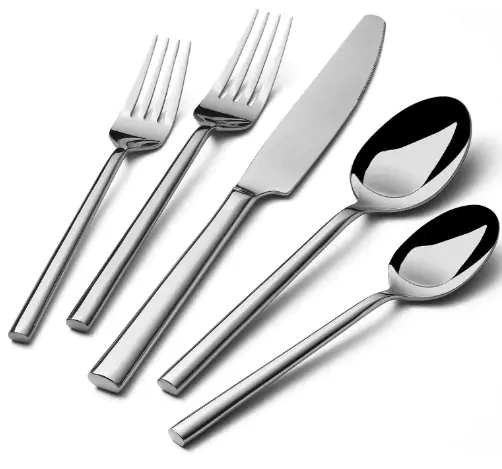
5. Place Napkin on Lap
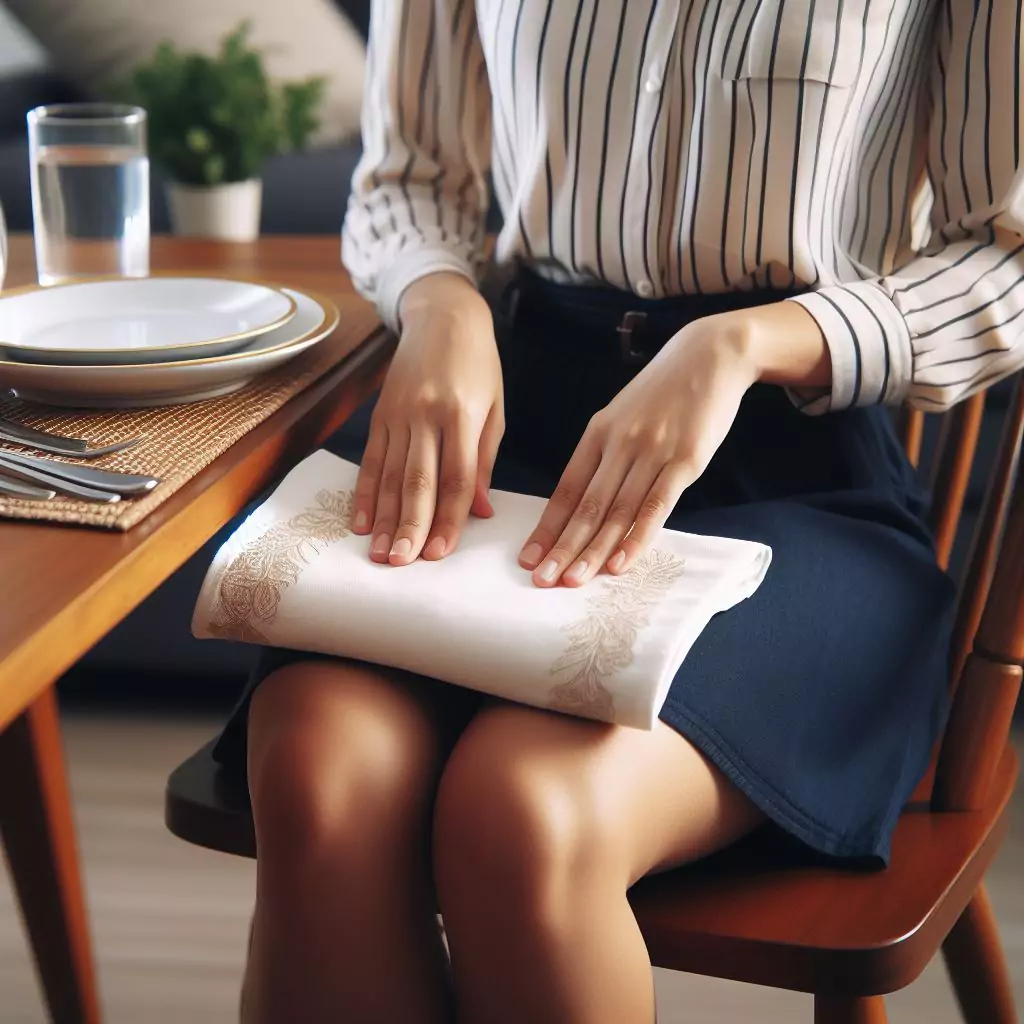
Upon sitting down, unfold your napkin and place it on your lap.
Use it to dab your mouth as needed during the meal, and when finished, loosely fold it and place it to the left of your plate.
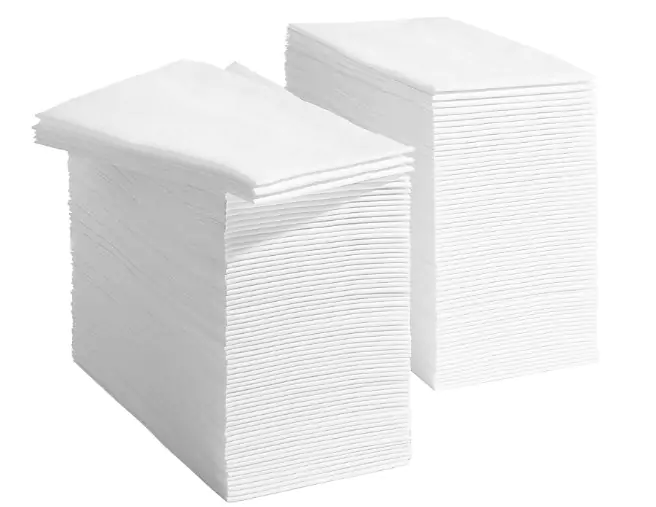
Recommended article: 18 American Dining Etiquette Rules Every Diner Should Know
6. Use the Correct Forks for Each Course
In formal dining situations, different forks are provided for different courses.
Start with the outermost fork and work your way inward as each course is served.
7. Know How to Eat Soup
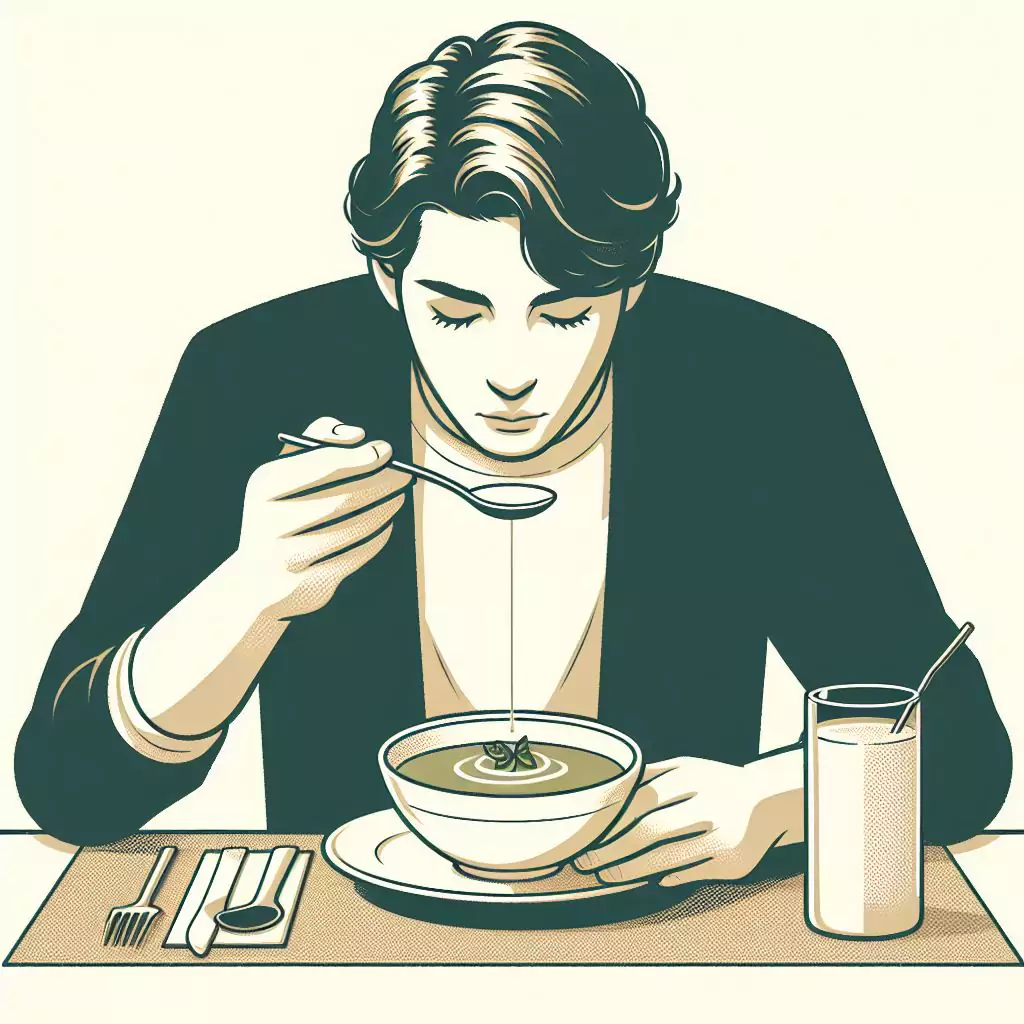
When eating soup, use your spoon to scoop the liquid away from you. Avoid slurping and ensure that you don’t tilt the bowl to drink directly from it.
8. Chew with Mouth Closed
To maintain decorum during the meal, chew your food with your mouth closed. This reduces noise and is more pleasant for fellow diners.
9. Don’t Cut Salad
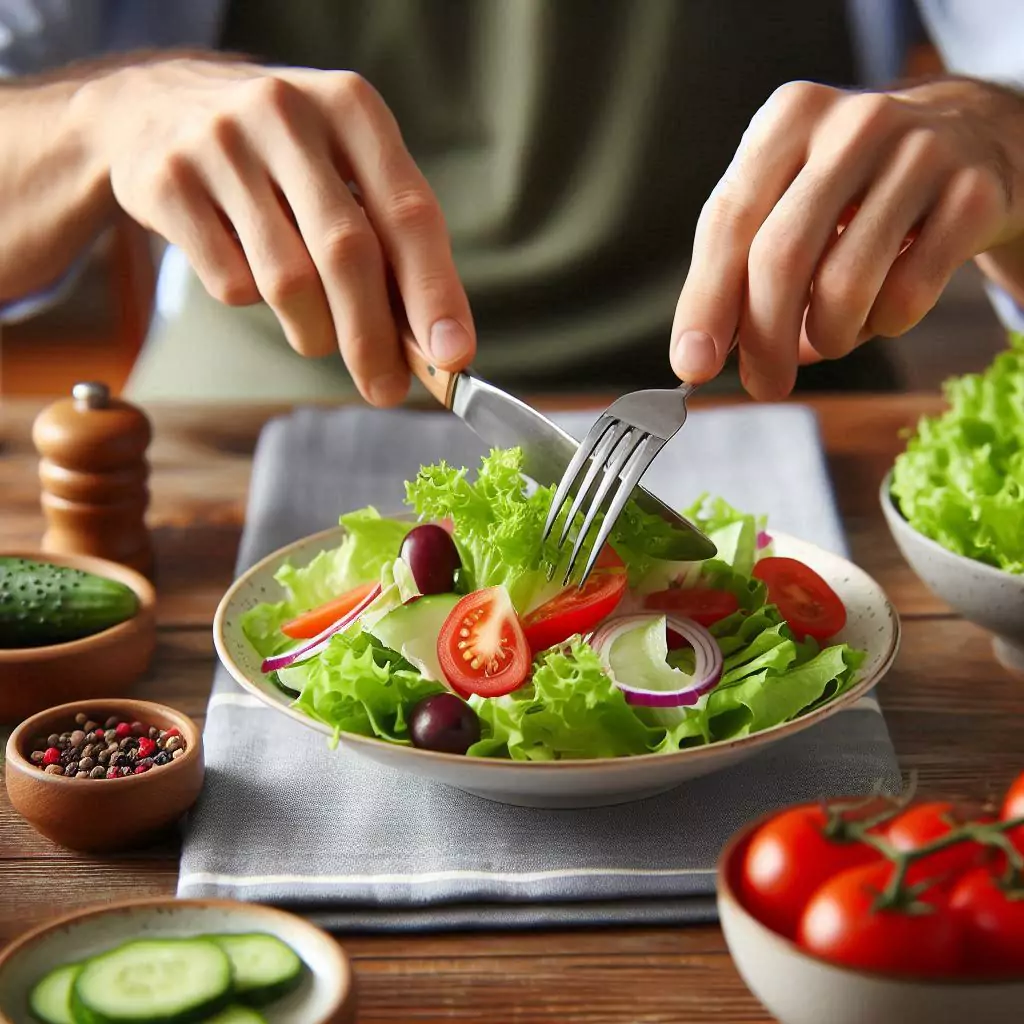
Salad is typically eaten by folding the leaves with your fork, not by cutting them with a knife. This practice is part of traditional German dining etiquette.
10. Toast Before Drinking
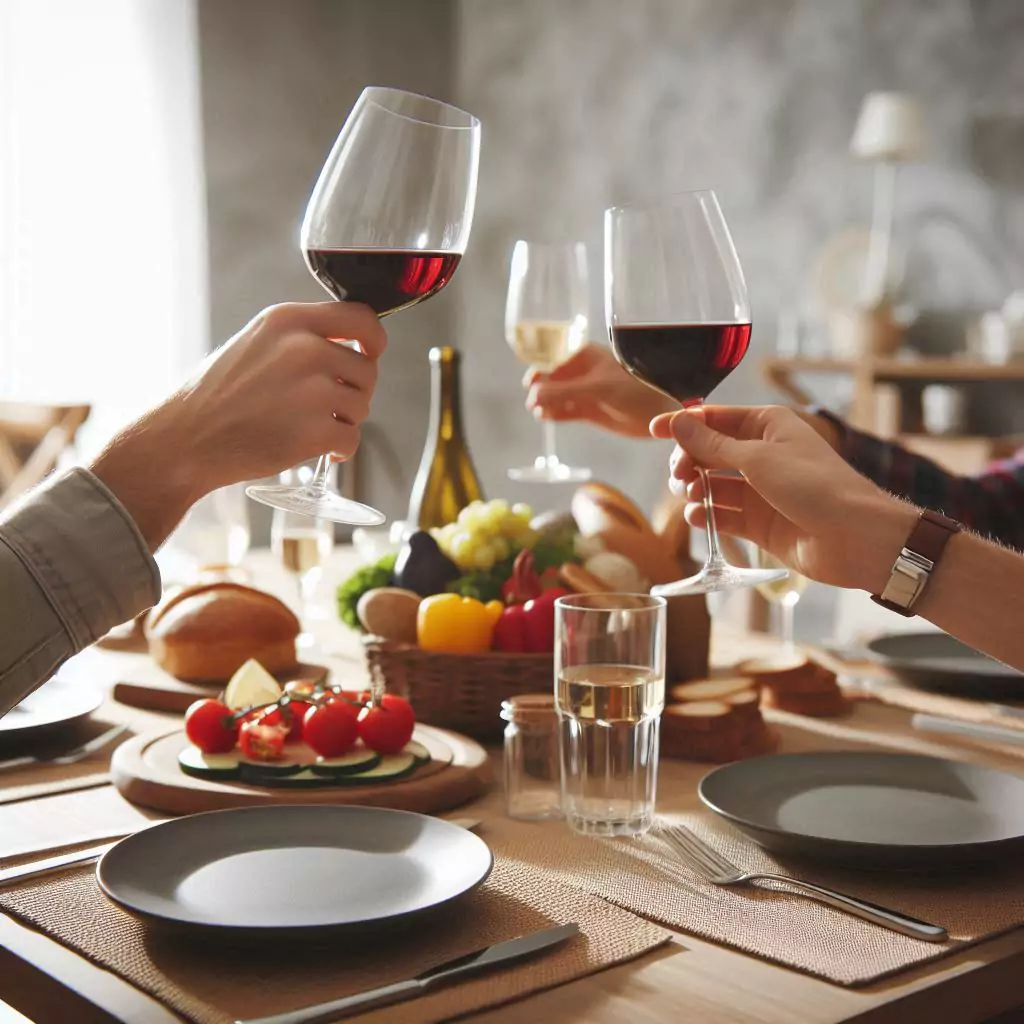
When participating in a toast, raise your glass and make eye contact with the person you are toasting before taking a sip. It’s a gesture of camaraderie and respect.
11. No Leftover Food on the Plate
Try to finish everything on your plate as leaving food uneaten can be seen as wasteful or disrespectful to the host and the chef.
12. Finish Everything on the Plate
To show appreciation for the meal and to avoid wasting food, make an effort to finish everything served on your plate.
13. No Tipping
Unlike in some other cultures, tipping is not customary in Germany. The service charge is usually included in the bill, so additional tipping is not expected.
14. Wait for the Host to Start the Conversation
Follow the lead of the host when it comes to starting or engaging in conversations during the meal.
This helps maintain a comfortable atmosphere for everyone.
Recommended article: 15 Italian Dining Etiquette Rules Every Diner Should Know
15. Avoid Loud Chewing or Smacking
To avoid disrupting the dining experience, chew your food quietly and avoid making loud noises or smacking sounds.
16. Use “Bitte” and “Danke” (Please and Thank You)
Politeness is key in German dining etiquette. Use “bitte” (please) when requesting something and “danke” (thank you) to express gratitude.
17. No Talking with Mouth Full

Wait until you’ve finished chewing and swallowing your food before speaking. Talking with a full mouth is considered impolite.
18. Don’t Reach Across Table
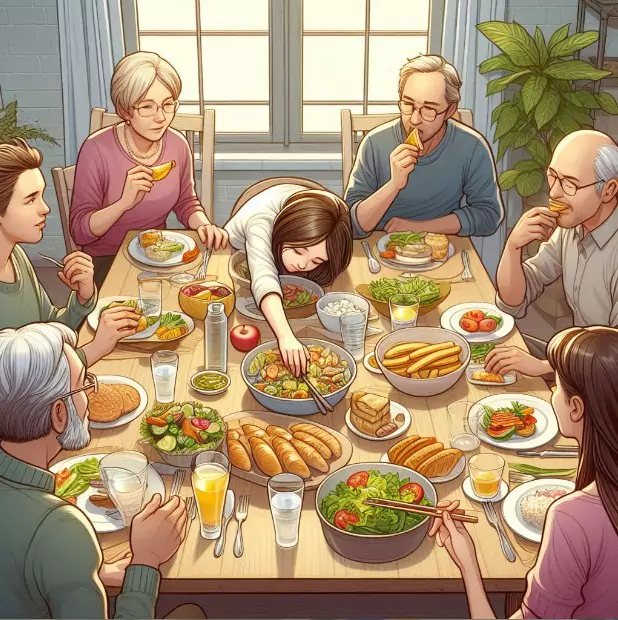
If you need something that’s out of your reach, politely ask someone near it to pass it to you rather than reaching across the table.
Recommended article: 17 Japanese Dining Etiquette Rules Every Diner Should Know
19. Wait for Toast Before Drinking
When someone offers a toast, wait until after the toast is made before taking a sip of your drink. This is a sign of respect for the person making the toast.
20. Keep Hands Visible
Avoid placing your hands in your lap or under the table during the meal. Keeping them visible on the table or resting on your lap above the table is more appropriate.
21. Use Utensils for Bread
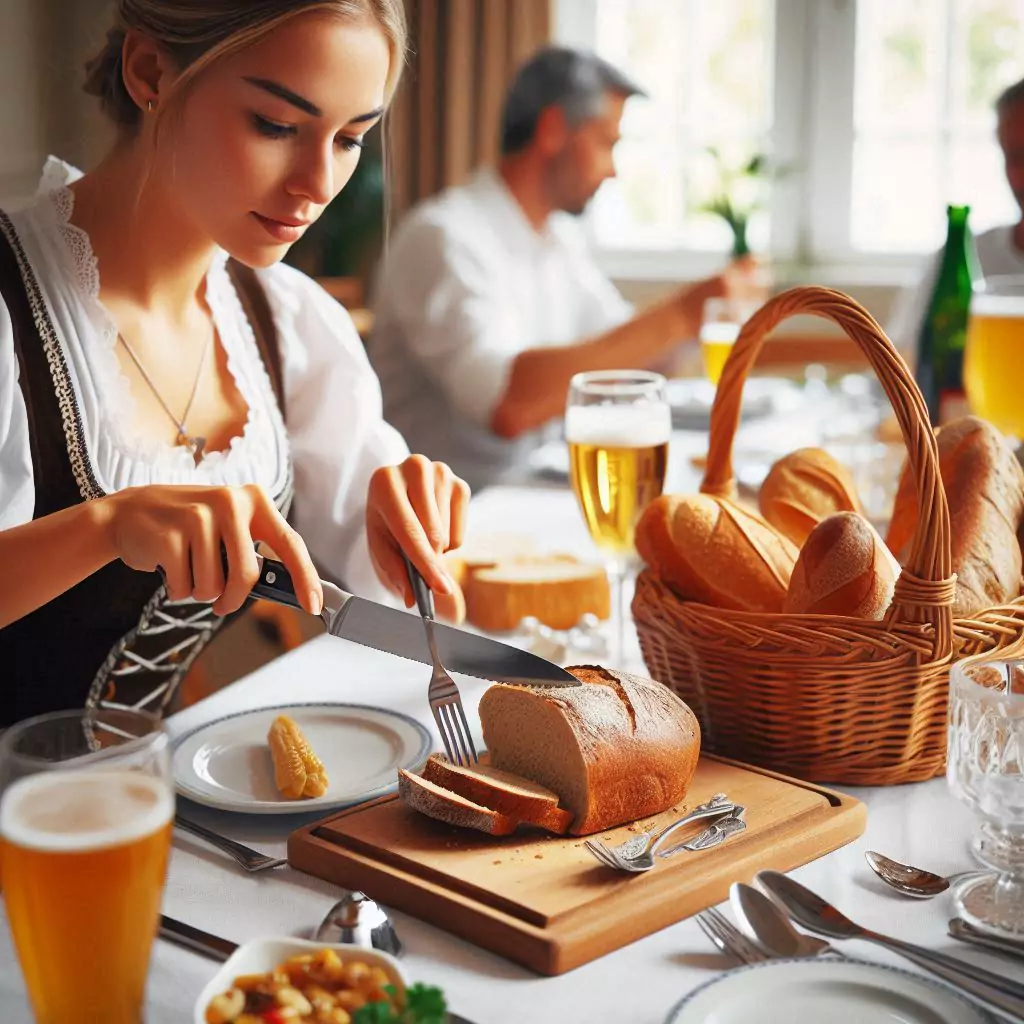
Use a knife to cut a piece of bread from the communal bread basket and place it on your plate. Use your hands to eat the bread, rather than biting directly from the loaf.
22. Do Not Ask for Salt or Pepper
It’s considered impolite to ask for salt or pepper to season your food in Germany. Trust that the chef has seasoned the dish appropriately.
23. Fold Napkin Neatly After Meal
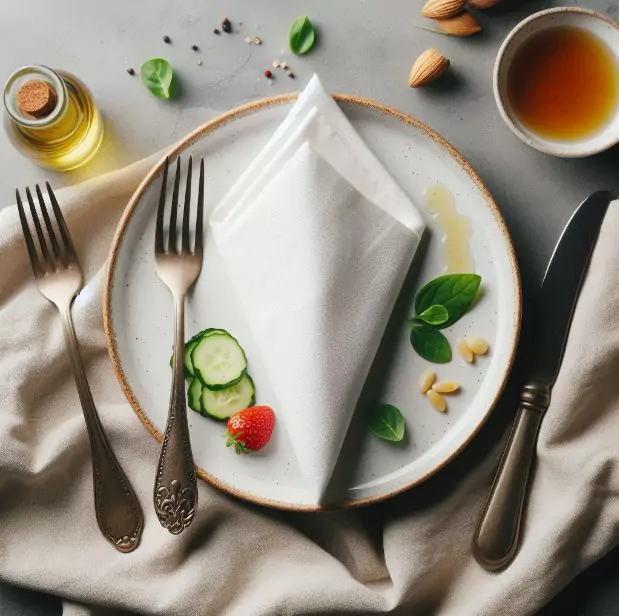
After finishing your meal, fold your napkin neatly and place it beside your plate or on the table.
This indicates that you have concluded your dining experience.
Recommended article: 15 Indian Dining Etiquette Rules Every Diner Should Know
24. Don’t Start Eating Until Everyone is Served
Wait until all guests at the table have been served before beginning to eat. This ensures that everyone can start together and enjoy the meal as a group.
25. Respect Seating Arrangements
If seating arrangements have been made, respect them and sit in your designated seat. This helps maintain order and organization during the meal.
26. Don’t Talk About Money at the Table
Avoid discussing financial matters or related topics during the meal. Focus on enjoying the food and engaging in pleasant conversation.
27. Compliment the Cook
If you enjoyed the meal, it’s polite to compliment the cook or host on the food. This shows appreciation for their effort and hospitality.
28. No Complaining About Food
Even if you have preferences or dislikes, avoid complaining about the food served. Be gracious and appreciative of the effort put into preparing the meal.
29. Offer to Help Clear the Table
After the meal, offer to help clear the table or assist with cleaning up. This gesture is appreciated and shows your willingness to contribute to the gathering.
30. Don’t Discuss Politics or Religion
To maintain a harmonious atmosphere, avoid discussions about sensitive topics like politics or religion during the meal. Focus on topics that are enjoyable and inclusive for all.
31. Thank the Host Before Leaving
Before departing, express your gratitude to the host for the meal and hospitality. A simple “thank you” goes a long way in showing appreciation.
Wrap Up
Understanding and respecting German dining etiquette is a delightful way to immerse yourself in the culture and show appreciation for the culinary experiences offered.
By following these customs, you not only showcase good manners but also foster meaningful connections and memorable dining experiences.
Guten Appetit!

